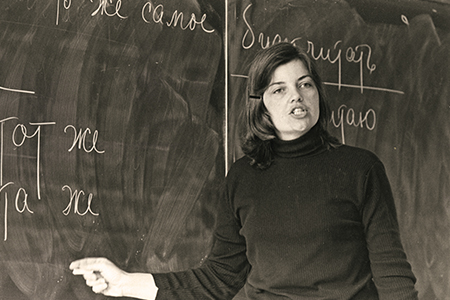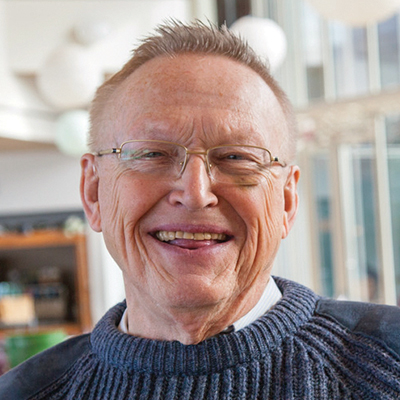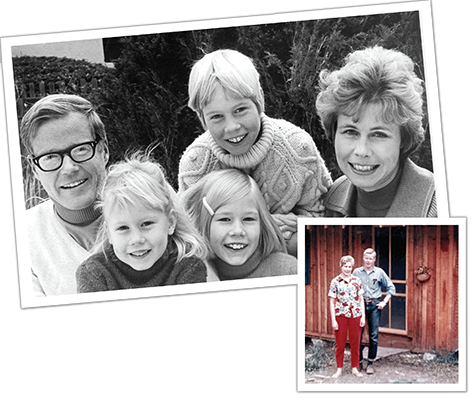Thank you so much for that splendid article (Fall 2023) about Harold Kasimow, who has been a treasured mentor and friend for these many years. When I first wandered into his Major Eastern Religions class as a naive hippie and spiritual seeker, I was immediately taken by his kindness, humor, and intellect. I also had no idea how that course would plant the seed that launched my eventual career teaching religious studies.
Harold truly is a mensch, a man of unquestionable dignity and integrity. But as so many of his former students know, he is also a bodhisattva, a luminous being who transforms those around him through a skillful weaving of compassion and wisdom. It is immensely gratifying to see Harold, now in his ninth decade, continue teaching, touching, and inspiring so many people.

 The remembrance letter from Paul Marthers ’82 marking the passing of Professor Sheila McCarthy (Spring 2023) triggered memories that have stayed with me for almost 40 years.
The remembrance letter from Paul Marthers ’82 marking the passing of Professor Sheila McCarthy (Spring 2023) triggered memories that have stayed with me for almost 40 years. I was delighted to read of honors given to our 1963 classmates, Mary Knuth Otto and Craig Henderson. Mary continues as our class agent, as she has for many years. Her letters are filled with class news, and the Alumni Award is well deserved.
I was delighted to read of honors given to our 1963 classmates, Mary Knuth Otto and Craig Henderson. Mary continues as our class agent, as she has for many years. Her letters are filled with class news, and the Alumni Award is well deserved. Thank you for Melanie Drake’s personal memoir of her father’s (and my classmate’s) lifelong connection to Grinnell, its ideals, and its students. I remember George as a young man of obvious seriousness and promise, and I only regret that I wasn’t a witness to his later years as teacher, mentor, and leader. Clearly, he grew into a man of immense talents, energy, erudition, and humanity — an inspiration for the many people whose lives he touched. In my mind he stands as an exemplary human being whose youthful promise was richly fulfilled. I’m honored to have known him.
Thank you for Melanie Drake’s personal memoir of her father’s (and my classmate’s) lifelong connection to Grinnell, its ideals, and its students. I remember George as a young man of obvious seriousness and promise, and I only regret that I wasn’t a witness to his later years as teacher, mentor, and leader. Clearly, he grew into a man of immense talents, energy, erudition, and humanity — an inspiration for the many people whose lives he touched. In my mind he stands as an exemplary human being whose youthful promise was richly fulfilled. I’m honored to have known him.